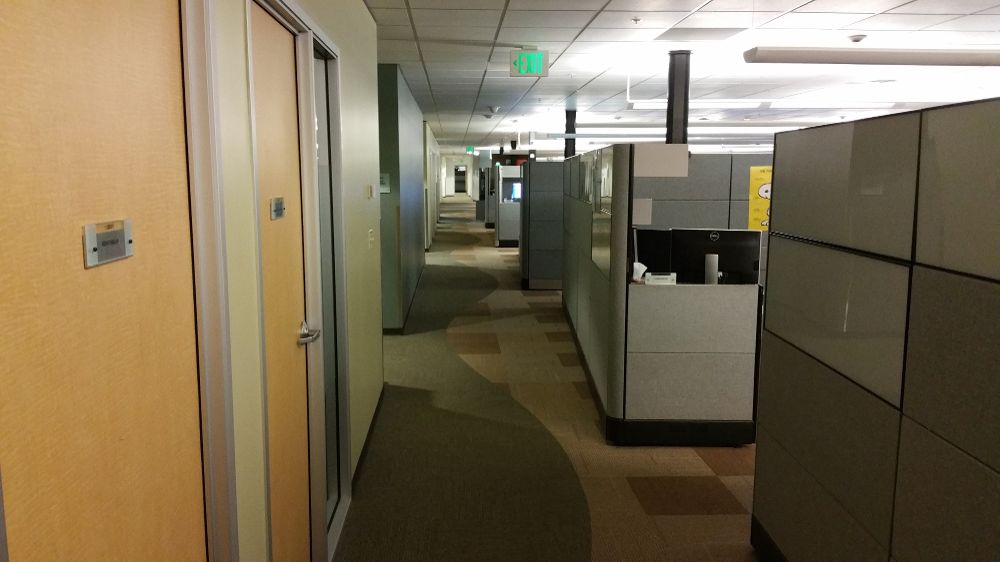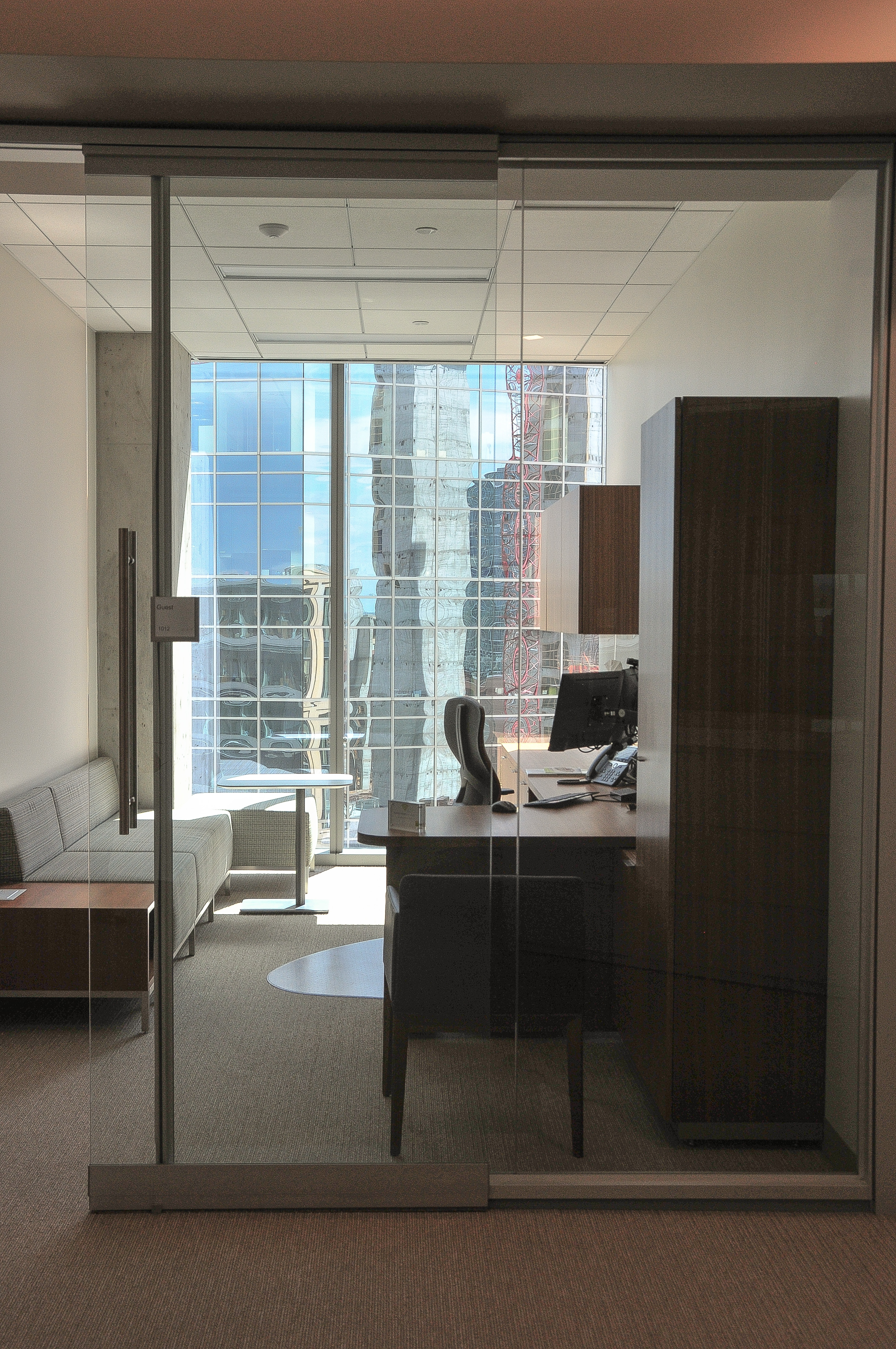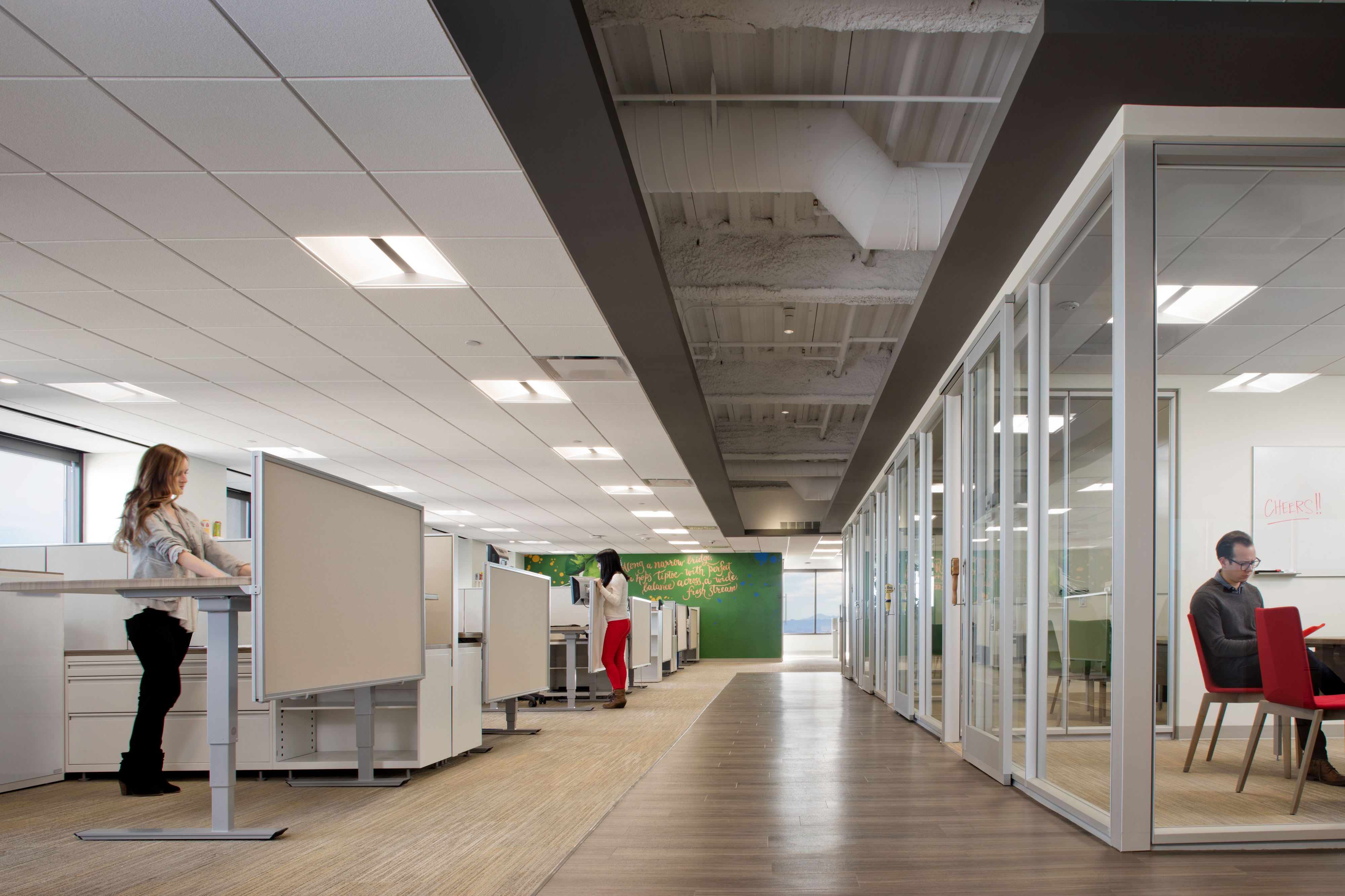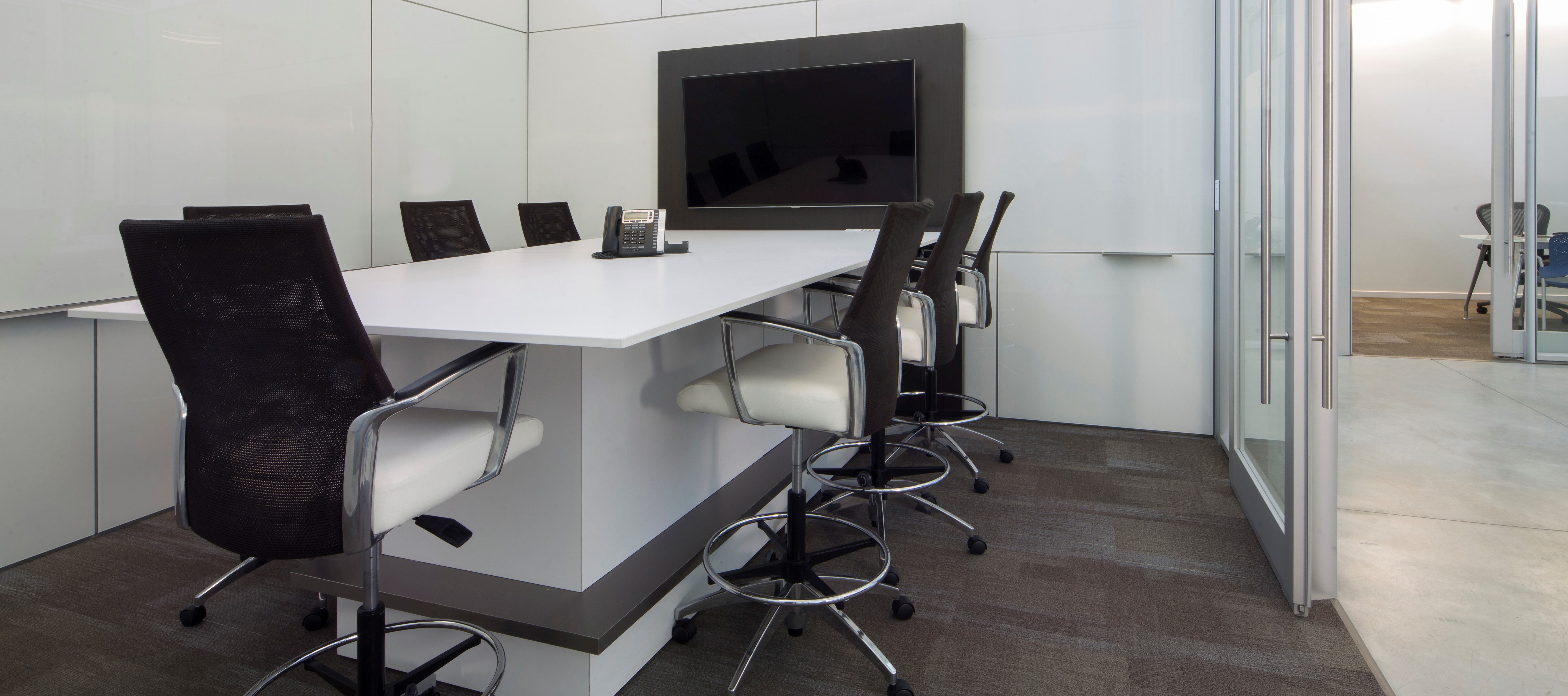You cannot put people in a crappy cubicle farm and hang signs that say “change the world.” Absolutely nothing will change and those people’s desire to come to the office will diminish day by day.
This wisdom was shared by Shopify founder Tobi Lutke on the Knowledge Project podcast last week when the podcast host asked Lutke about Shopify’s offices. Lutke said he thinks it is valuable to have his employees working in a place full of great design. Or, as Deion Sanders once put it, “If you look good, you feel good. If you feel good, you play good. If you play good, they pay good.”

Atlas RFID’s Interior Space
Lutke put into words something that I have been emphasizing with clients a lot lately. It seems that frequently when a company or firm is considering moving offices or refurbishing space, the decision makers are occupants of exterior offices. Their biggest concern is commonly the happiness of the other occupants of external offices.
Usually unintentionally, they forget to think about the experience of the people occupying interior spaces – the parts of the office that are often deprived of natural light. These spaces many times are, at best, generic and, at worst, dated and soul-crushing in design.

Photostock image literally labeled “depressing work space”
What I believe Lutke is saying is that if you put people in space with great design, it sends a message to those people that they are valued and the company expects great things of them. By contrast, if you put them in a “crappy cubicle farm,” you risk sending the message that their jobs are unimportant and further risk those people internalizing that message. Like almost everything else in life, you get in what you put out.

Is this the message you want your work space to send to your employees?
This doesn’t mean you have to spend a ton of money on space. It does mean that you have to give thought to the workplace experience of each employee. For instance, putting glass walls on exterior offices not only provides an open approachable feeling to the exterior offices; it also allows natural light to filter to the interior of the space to the benefit of the people working there.

Inspirato Denver
Per Harvard Business Review, a survey of 1,614 North American employees found that natural light is the most craved workplace attribute. “47% of employees admit they feel tired or very tired from the absence of natural light or a window at their office, and 43% report feeling gloomy because of the lack of light.”[i]
I occasionally hear an exterior office occupant lament the perceived loss of privacy associated with glass walls or sidelites. I suggest that their loss of privacy needs to be weighed against the general well-being and productivity of the interior office occupants. Could a frosted strip on the glass restore a level of privacy while not jeopardizing the benefits of natural light? Jackpot!

Hogan Lovells Denver
Other tactics for improving all space: plants, comfortable soft seating areas, and well stocked kitchens and break rooms. Include these concepts and send a message to all of your employees that you value them and the contribution you know they can make to your company. They will probably perform, if not exceed, expectations.

Molson Coors
[i] “The #1 Office Perk? Natural Light” by Jeanne C. Meister. Harvard Business Review. January 3, 2018.

